|
Tomorrow, voters head to the polls. In this special midterm election newsletter, we present stories about who votes, how they may vote and about those denied the right to vote.
While 42 percent of Americans say they consider themselves independents – not Democrats or Republicans – University of Dayton political scientist Christopher Devine says the majority actually lean toward one of the major political parties. Which way Arizona independents lean will be decisive in the tight race to replace Sen. Jeff Flake, writes ASU politics scholar Gina Woodall. Another group that has
potential to shift the outcome of races: undergraduates. Nancy Thomas, of Tufts University, predicts a high turnout among the nation’s 20 million college students – usually reluctant voters.
As sexual assault accusations dogged the president, pundits predicted widespread defections by GOP women. But Rochester Institute of Technology scholars Christine A. Kray, Hinda Mandell and Tamar Carroll write that they believe GOP women will stand by their party. White evangelicals account for the largest religious group in some of the states hosting the most competitive races. University of Maryland professor of American Studies Janelle Wong asks how evangelicals will vote on some of the bitterly contested issues of the campaign.
And finally, almost every day brings news of attempts to suppress the African-American vote in Georgia. The fight, notes Morehouse College historian Frederick Knight, is hardly a new one.
|
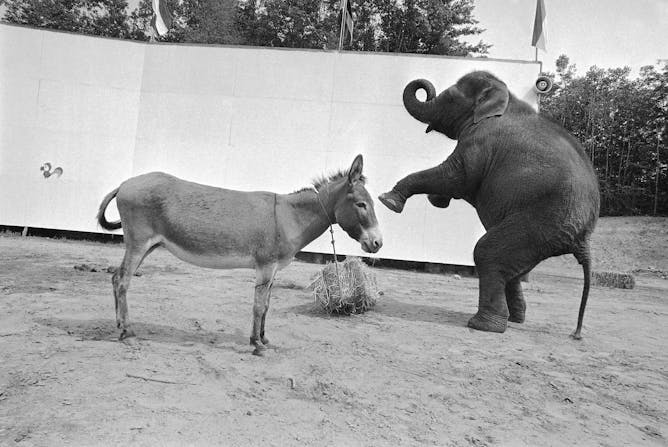
Dolly the elephant and Dottie the donkey.
AP Photo/Bob Schutz
Christopher Devine, University of Dayton
The true number of people who do not favor either of the two major political parties in the US has actually remained stable in recent years.
|
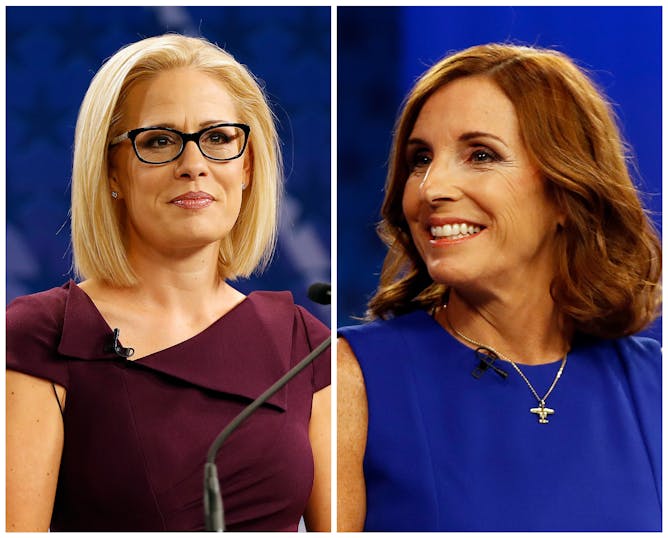
Democrat Kyrsten Sinema (left) and Republican Martha McSally are competing to fill the seat of retiring Sen. Jeff Flake.
AP Photo/Matt York
Gina Woodall, Arizona State University
Two accomplished women are running against each other to replace Sen. Jeff Flake.
|
|
|

Nancy Thomas, Tufts University
More college students are registered to vote in the November midterm elections this year than they were in 2014, but it remains to be seen how many more will vote.
| |
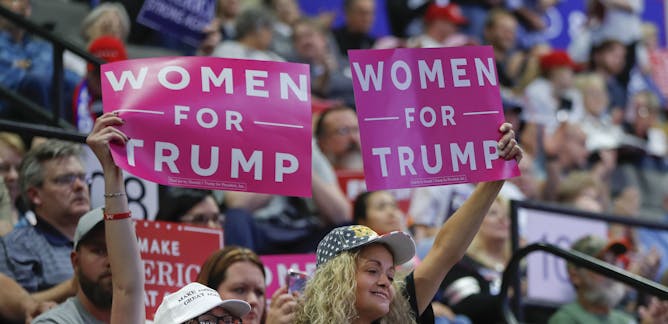
Christine A. Kray, Rochester Institute of Technology; Hinda Mandell, Rochester Institute of Technology; Tamar Carroll, Rochester Institute of Technology
The GOP's handling of sexual assault allegations against prominent GOP figures has led some to conclude that the party does not respect women. But GOP women are sticking with their party.
|
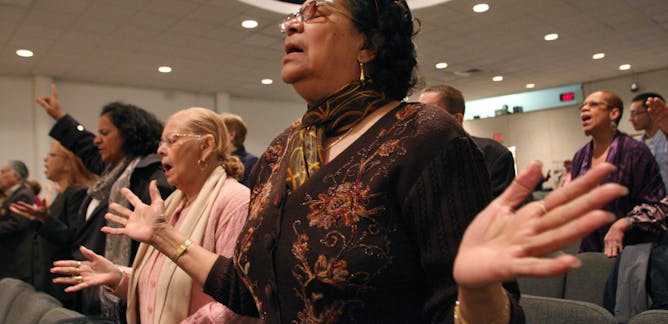
Janelle Wong, University of Maryland
Two of the fastest growing segments of the American population Latino and Asian-American voters - also are part of evangelical America. Their views on immigration are very different.
| |
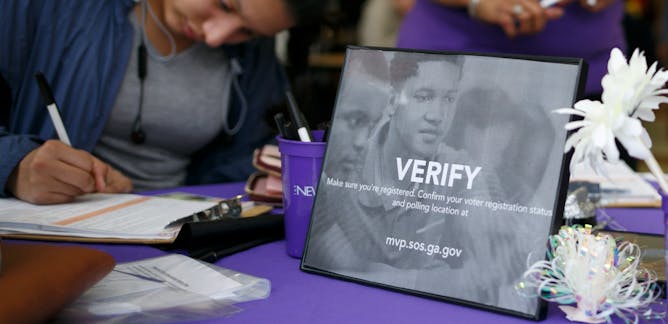
Frederick Knight, Morehouse College
Georgia's secretary of state has stalled voter registrations and accused Democrats of hacking. His tactics recall past efforts in the South to suppress black votes, from poll taxes to literacy tests
|
|
|